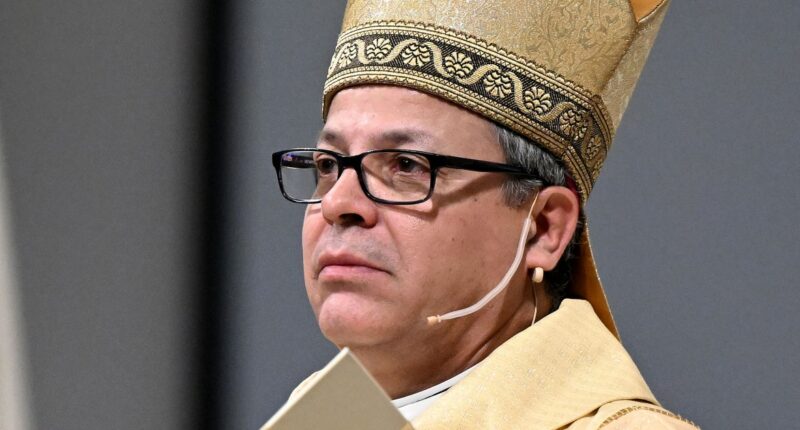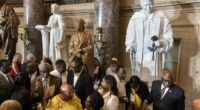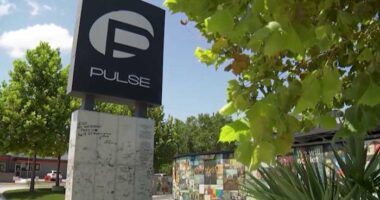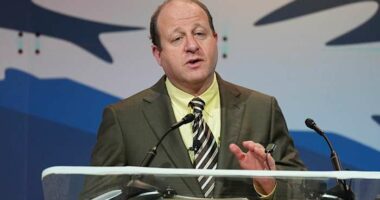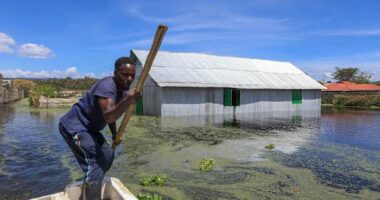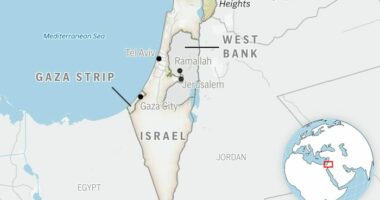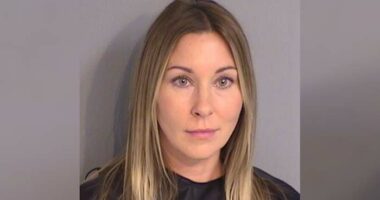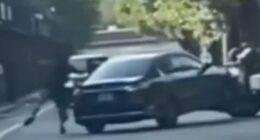Share this @internewscast.com
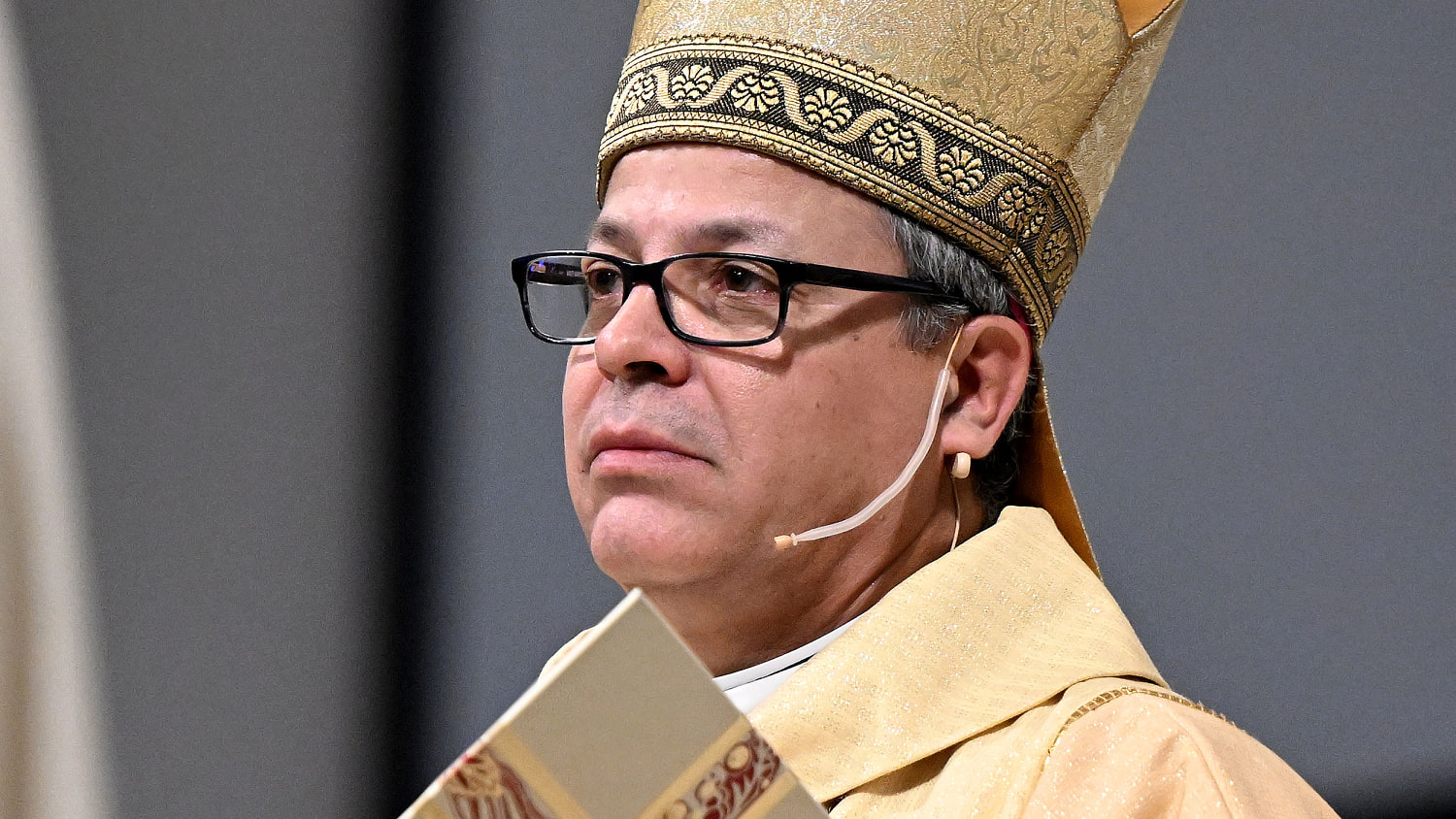
LOS ANGELES — Bishop Alberto Rojas of San Bernardino, guiding over 1.5 million Catholics in Southern California, has officially released parishioners from the weekly obligation to attend Mass due to immigration raids at two diocesan parish locations.
This dispensation is typically under special situations, like during the peak of the Covid-19 pandemic. However, Rojas believes it is necessary now due to the widespread fear of arrest and deportation affecting Catholic communities.
“There is genuine fear affecting many in our parish communities, worrying that any public outing could lead to arrest by immigration officials,” Rojas stated on Wednesday.
“Sadly, that includes attending Mass. The recent apprehension of individuals at two of our Catholic parishes has only intensified that fear. I want our immigrant communities to know that their Church stands with them and walks with them through this trying time.”
Save for a serious reason, Catholics are obligated by their faith to attend Mass on Sundays and holy days of obligation. In May, the Diocese of Nashville in Tennessee issued a similar statement following immigra
tion enforcement actions in the area, excusing those fearful of attending Mass from their holy obligation, though it was not named as a formal dispensation.
Rojas is an immigrant himself. He was born and raised in Aguascalientes, Mexico. He has been consistent in his support of immigrants and said when he assumed this role that it would be one of his top priorities.
In early June, the Trump administration significantly ramped up immigration arrests and raids in Southern California, particularly in Los Angeles, with federal agents conducting sweeps in workplaces and public spaces and apprehending hundreds.
Last month, as federal agents made arrests and the federal government deployed the National Guard to maintain order amid protests in Los Angeles, Rojas issued a statement calling out federal agents entering parish properties and “seizing several people,” creating an environment of fear and confusion.
“It is not of the Gospel of Jesus Christ — which guides us in all that we do,” he said. “I ask all political leaders and decision-makers to please reconsider these tactics immediately in favor of an approach that respects human rights and human dignity and builds toward a more lasting, comprehensive reform of our immigration system.”
Created in 1978, the diocese serves over 1.5 million Catholics in Riverside County, which is 52.5% Latino, and San Bernardino County, which is 56.4% Latino, according to the 2020 U.S. Census.
Members of local parishes who are in the U.S. without documents have made positive contributions to their communities “with no other issues than their legal status,” the bishop said.
“Most of them are here because they wanted to save their families; they had no other option. I believe that they would love to be legalized, but who can help them?”
Rojas said he knows these people would be in church but for the threat to their safety and their family unity.
“With all the worry and anxiety that they are feeling I wanted to take away, for a time, the burden they may be feeling from not being able to fulfill this commitment to which our Catholic faithful are called,” Rojas said.
Pastor Omar Coronado with Inland Congregations United for Change, a faith-based nonprofit serving Riverside and San Bernardino counties, called the bishop’s decree “an extraordinary act of moral courage and pastoral care.”
At a time when so many families are living in fear and uncertainty, the Bishop’s voice offers not just protection but hope,” he said in a statement. “We’re deeply grateful for his leadership in reminding us that faith is not meant to hide behind walls, but to stand with the vulnerable.”
The Diocese of San Bernardino is the nation’s fifth-largest Catholic diocese and second-largest in California next to the Archdiocese of Los Angeles, which is the largest in the country with about 5 million members. Neither the Los Angeles Archdiocese nor the neighboring Diocese of Orange, which serves about 1.3 million Catholics, has issued similar dispensations.
A spokesperson for the Diocese of Orange said they have in recent weeks taken steps to support the immigrant community, including asking priests to bring Communion and celebrate Mass in the homes of those who are fearful of leaving their homes. The diocese has also shared protocols with parishes and Catholic schools to help them prepare and respond properly to the presence of immigration officials on church or school grounds, he said. In addition, the diocese is also coordinating efforts to have priests and deacons accompany and spiritually support people at immigration court hearings.
Parishes under the Archdiocese of Los Angeles are also continuing to “provide outreach to families and individuals that have been impacted,” an archdiocese spokesperson said.
